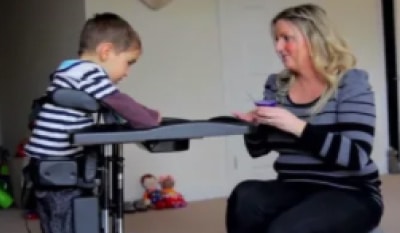
Making an NHS Claim
- No win, no fee
- Not just lawyers - real specialists
- No obligation
- UK's highest-rated medical negligence solicitors
How to Make an NHS Negligence Claim
The NHS pays out over £2 billion in compensation each year to settle claims of medical negligence. In order to manage these claims, the NHS has a dedicated service in the form of NHS Resolution which serves to deal with all claims, improve practitioner performance and improve safety and services following cases of medical negligence.
The NHS is dedicated to providing the best healthcare across the UK, which is why they set up NHS Resolution to effectively help patients wishing to make a claim. These claims then initiate continued learning and development for all aspects of healthcare so that outcomes can be improved for all patients.
This guide will explain when you can make an NHS negligence claim, how to make a claim and what happens when you do.
Find out if you
have a claim
Take the 10-second claim test Free advice
03300 080 352 Fill in our
claim form
We're the highest-rated No Win No Fee medical negligence solicitors on Trustpilot
Types of NHS Claims
The NHS healthcare system can be divided into four categories:
- Primary care – early interactions with healthcare providers like GPs or dentists
- Secondary care – planned or elective procedures usually in hospital or emergency visits to A&E or out of hours centres
- Tertiary care – specialist treatment usually involving surgical procedures like transplants
- Community health – healthcare in your local community, such as district nursing or health visits
You can make an NHS negligence claim for care you received during any of these stages. There are many reasons you may be eligible to make a claim for medical negligence and the most common types of claims include:
Misdiagnosis – where your condition or illness is diagnosed as something else, either at an early appointment or from tests being wrongly interpreted
Delayed diagnosis – any unacceptable time lag in your diagnosis, for example, tests not being requested, missed appointments or symptoms being ignored
Surgical errors – any error that happens during or even post surgery, including anaesthesia related errors
Prescription errors – failing to prescribe the correct medication or prescribing the wrong dosage
Birth injury – any injury to a mother or child before, during or after birth. This includes conditions like Cerebral Palsy
Never events – events that quite simply should not happen under any circumstances in an NHS setting
Misleading advice – instances where a healthcare professional has given advice that was wrong or misleading and has led to a worsening of an injury or illness
Claims against the NHS typically fall into one of these areas but, of course, there are many variations on each of these claim types and every case will have different details. Every illness or injury is unique to the individual and if you do not see your claim type above, it does not mean you aren’t able to claim.
Making a successful claim against the NHS
As well as establishing the type of medical negligence that occurred, when making a claim against the NHS, it will need to be shown that what happened was a legitimate breach in the NHS duty of care.
All medical negligence cases must satisfy the criteria set out in the four Ds of medical negligence in order to be successful.
- Duty – healthcare providers must uphold a satisfactory duty of care when treating any patient
- Dereliction – if they fail to meet this duty of care, this may constitute a dereliction or a breach of duty
- Damages – the impact and consequences of this dereliction and how much it has cost the patient financially, physically and mentally
- Direct cause – it must be proven that the dereliction in the duty of care directly caused the damages to occur.
If there is no proven link between the damages incurred and the care received then your claim will likely not be successful. When making a claim against the NHS it is important to provide detailed information to ensure that your eligibility to claim can be assessed.
Proving medical negligence
As above, for your claim to be successful it is important to gather evidence to support your case. A specialist medical negligence lawyer will guide you through the evidence you need and access much of it without your involvement. Some examples of the evidence you may need include:
Photos – photo or video evidence of the impact the medical negligence has had on your life
Invoices and receipts – any bills for extra medical care, rehabilitation, therapy or medicines
Prescription slips – proof of incorrect prescriptions or extra prescriptions that could have been avoided
Medical records – your medical records will be accessed and investigated by both parties
Witness statements – you may have had a friend or family member present when the negligence occurred
Your claim may also involve visiting a third party or independent healthcare professional who will make an assessment of your condition or injury to provide expert commentary on the matter. This would be pre arranged and paid for as part of your claim but can be very beneficial in proving medical negligence.
Time limits for making a claim
The standard time limit when making a claim against the NHS is three years. However, this falls into two categories:
- Three years from the date the medical negligence happened, for example, the date you were given the wrong treatment or prescription
- Three years from the date you found out about the medical negligence. You may not discover until much later that the care you received was not good enough and led to a worse outcome or symptoms may not be present immediately, such as retained objects following surgery.
You are also able to make a claim on behalf of a child until they turn 18. They then have three years from the date of their 18th birthday to claim against the NHS. There is no time limit if the person you are claiming for is mentally incapacitated and unable to make the claim themselves.
Who pays for NHS compensation
NHS Resolution sets aside an amount every year for clinical negligence claims. Every NHS Trust in the UK pays a premium to NHS Resolution to cover these claims. It is essentially an insurance policy to cover any medical negligence. Understanding this can help to alleviate any feelings of guilt you may experience when considering making a claim against the NHS. We are fortunate in this country to have access to an excellent healthcare service. But when that service falls below the expected duty of care, and avoidable damage is caused, you are within your rights to have this investigated.
Sadly, medical negligence is an unavoidable part of accessing any kind of healthcare. Whilst it is important to protect the NHS, it is also impractical to expect those who have suffered medical negligence to pay for their own avoidable costs, or for processes to go unimproved. These premiums pay for successful medical negligence claims and help the NHS to learn how they can improve all areas of healthcare.
What will NHS Compensation Pay for?
The amount you receive if your claim is successful will depend on the individual damages you have incurred. These damages are split into two categories: general damages and special damages.
General Damages
General damages refers mainly to the physical damage arising from medical negligence. This includes pain and suffering during the actual injury and during treatment, mental health problems caused by the injury such as anxiety or depression, and permanent physical damage like an amputation that drastically alters quality of life.
Special Damages
Special damages cover the non physical consequences and can be things like travel costs to and from appointments, extra medical bills or private care, an initial loss of earnings or future loss of earnings if you cannot work, and the cost of any ongoing care or adaptations to your life such as installing rails in your home or needing domestic help.
Each of these damages will be defined and assessed to ensure that you get the maximum amount to cover these costs and the impact of your illness or injury.
Claiming whilst still having treatment
It is possible to make a claim whilst still undergoing treatment at the healthcare provider you are suing. This is common in cases where medical negligence has led to a terminal diagnosis or regular follow up appointments or rehabilitation. No matter the circumstances, NHS healthcare providers must deliver a satisfactory level of care to all patients. Your treatment plan would not be affected by any claim you made against the NHS organisation or trust.
Specialist medical negligence lawyers
If you have suffered medical negligence, you might initially wish to make a complaint to NHS England or to the practice or hospital that treated you. Whilst some patients do get an adequate response and are happy to move on, making a complaint does not guarantee that the same thing will not happen again, and there is no certainty that the healthcare professional who treated you will learn from their mistake.
Making a claim against the NHS means that your case will be investigated thoroughly and you will receive compensation to help you restore your life or pay for the impact medical negligence has had.
There are many accident and injury firms, but Patient Claim Line is a specialist medical negligence firm with over 100 lawyers working solely on medical negligence cases. This level of expertise means we understand the nuances of every claim and have helped thousands of clients just like you get the right amount of compensation. Using a dedicated medical negligence solicitor will give you the best chance of making a successful claim.
You will also be able to take advantage of our no win no fee agreement that means no upfront cost or any risk to you should you go ahead with your claim against the NHS.
What happens when you make a claim?
If you think you have suffered from medical negligence and that your claim fits the criteria set out above then all you need to do is make contact with one of our solicitors who can tell you quickly if you have a claim.
You are just 6 steps away from getting the justice you deserve:
- Initial Enquiry
- Case Acceptance
- Accessing your medical records
- Obtaining medical evidence
- Negotiation with the defending party
- Your compensation is secured
Meet our medical negligence team
Peter Rigby
Director of Medical Negligence
Christian Beadell
Partner, Head of Strategy and Legal Operations
Francesca Paul
Associate Solicitor
Sion Wynne
Senior Solicitor
Case Study
Sarah's Story
"Now we have peace of mind"
My husband, Nick, went back and forth to the doctors for a long time and tried everything the doctor recommended. But his illness got worse, to the point that he was in agony.
In the end we got so desperate that we asked for a referral. The doctor was reluctant, so we had to consult a private hospital. That’s when we found out there was a tumour. It took years from the onset of his illness to finally start cancer treatment.


He used to be a man with a lot to live for, but in the end he was in so much pain that he withdrew from the family. He became angry that nobody had helped him sooner, and the legal team were able to give him the validation that he was desperately seeking. The NHS confirmed if they had done more, Nick would still be alive today.







